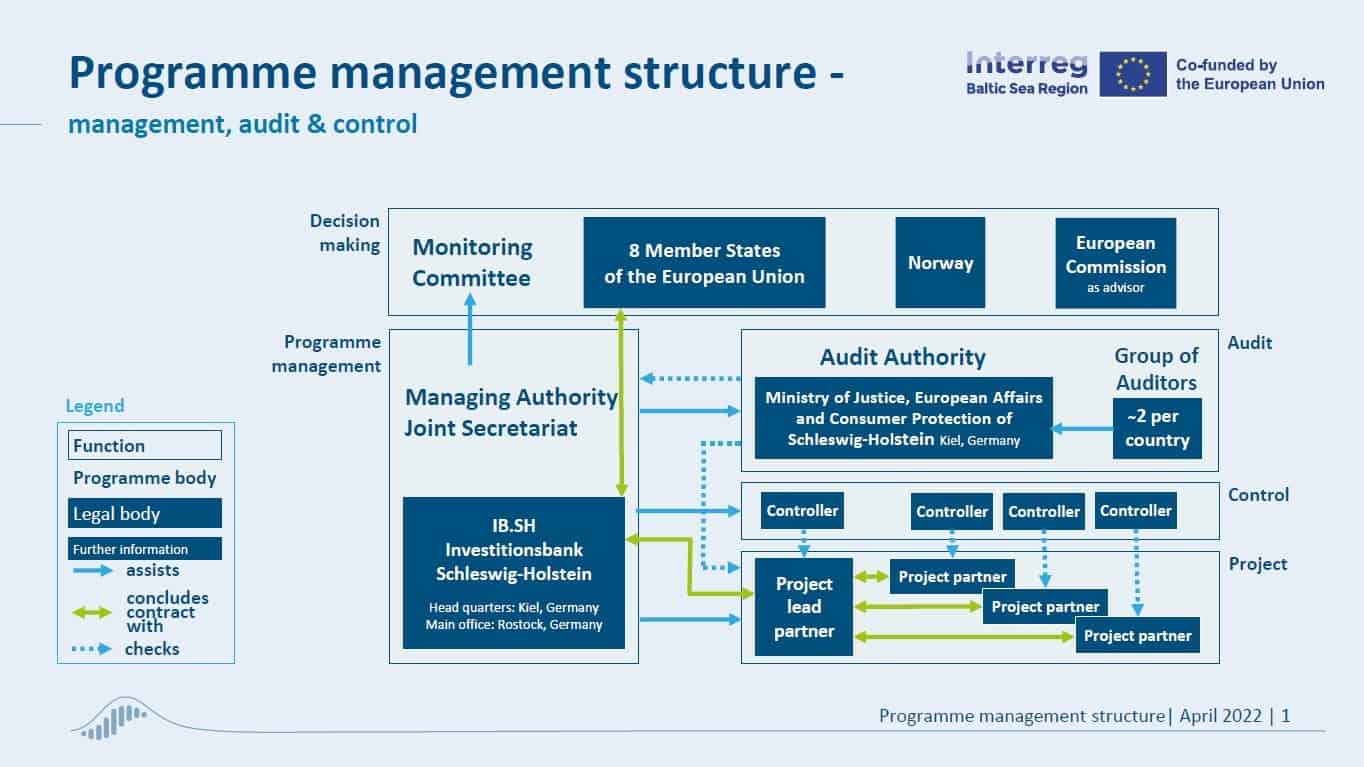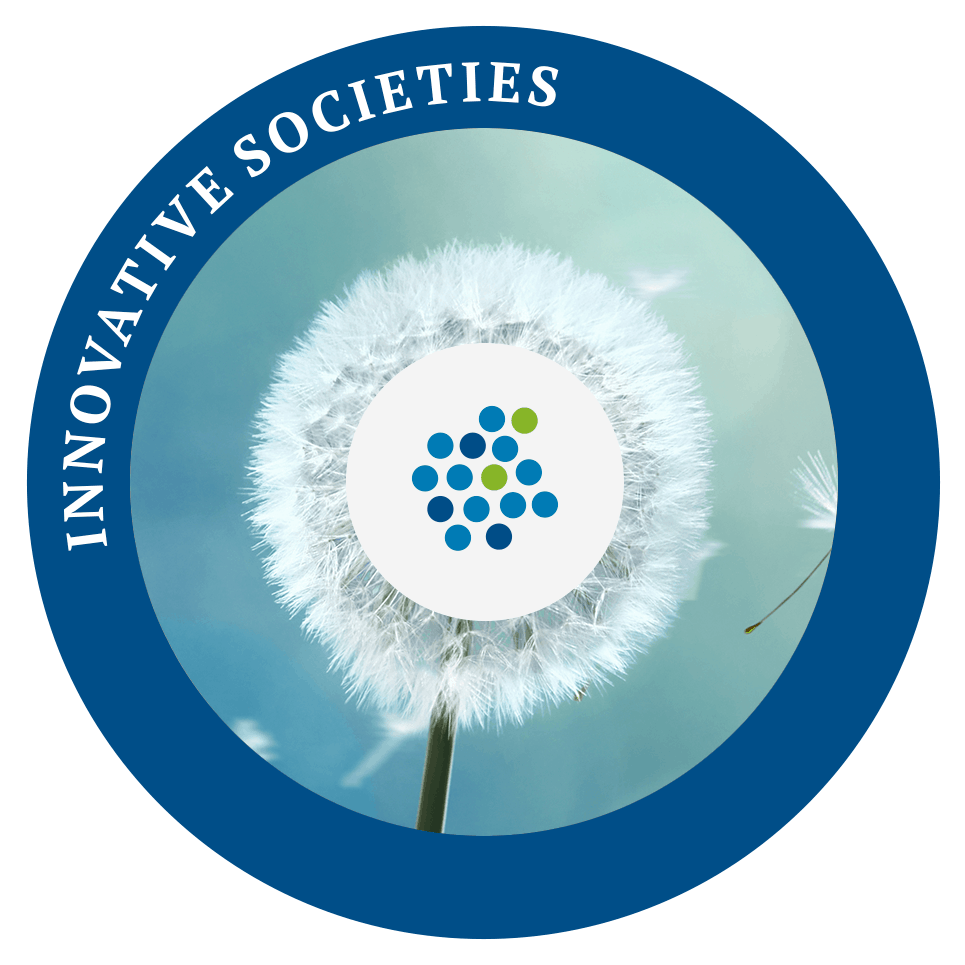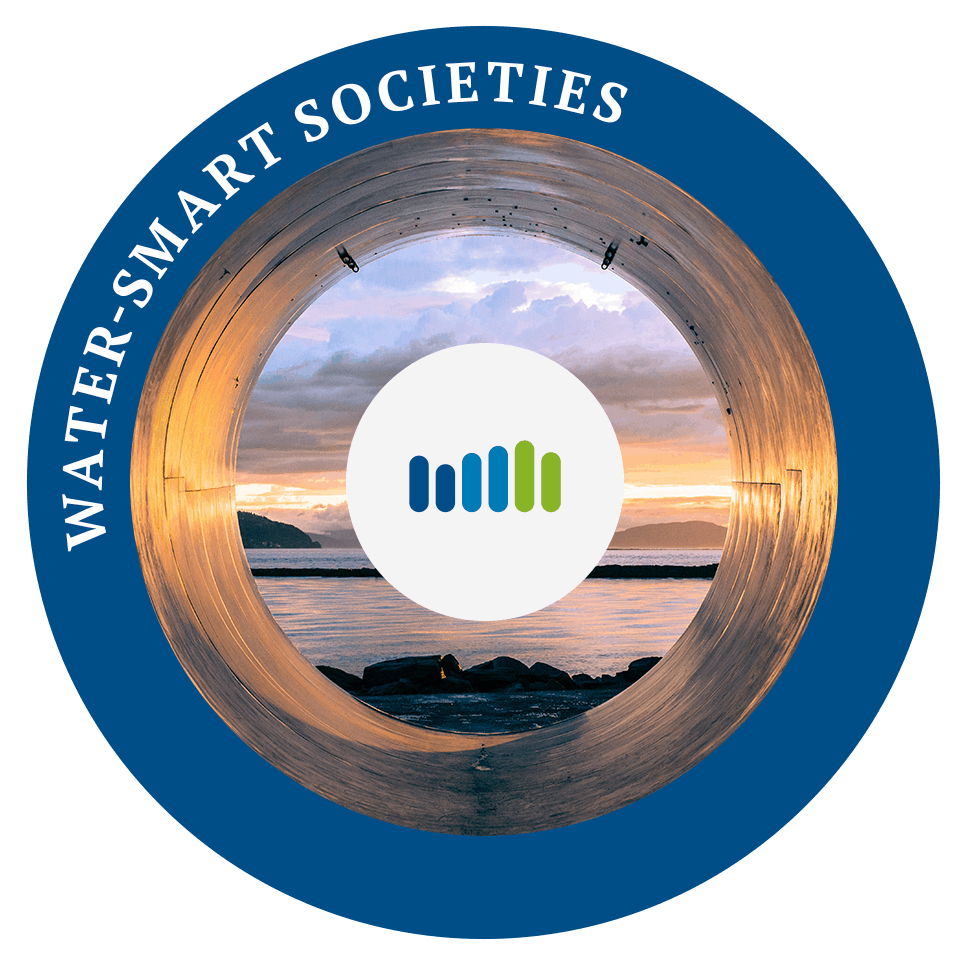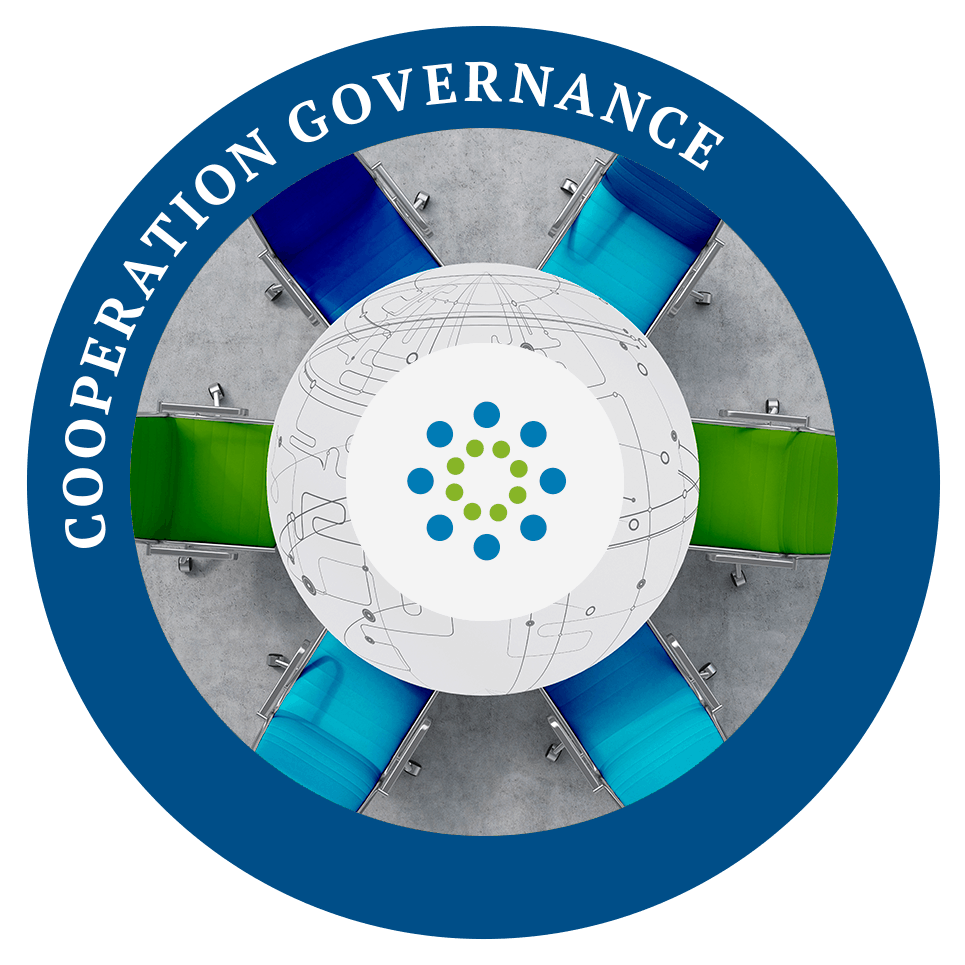Interreg Baltic Sea Region 2021- 2027
Solutions for a green and resilient Baltic Sea region
Interreg Baltic Sea Region 2021-2027 is a source of EU funding. We offer more than money: we bring together cultures, perspectives and expertise to get the best ideas and joint solutions. With our support, projects drive the transition to a green and resilient region. Jointly, we make the life of people around the Baltic Sea better.
Interreg Baltic Sea Region 2021 – 2027
Funding under four priorities
With experience and EU funding, we help organisations from countries around the Baltic Sea to cooperate and put their ideas into practice. These ideas need to fit into one of four thematic priorities and help build Innovative societies (Priority 1), Water-smart societies (Priority 2), Climate-neutral societies (Priority 3) or Cooperation governance (Priority 4).
Priority 1
Innovative societies
1.1 Resilient economies and communities 1.2 Responsive public services
Priority 3
Climate-neutral societies
3.1 Circular economy 3.2 Energy transition 3.3 Smart green mobility
Priority 2
Water-smart societies
2.1 Sustainable waters 2.2 Blue economy
Priority 4
Cooperation governance
4.1 Project platforms 4.2 Macro-regional goverance
Interreg Baltic Sea Region 2021 – 2027
Programme area
The area of the Interreg Baltic Sea Region Programme covers nine countries: eight EU Member States and one non-EU country. The Programme covers an area of around 2.9 million km² with a population of 80 million inhabitants. It stretches from central parts of Europe up to its northernmost periphery, comprising European metropolitan areas, while major parts of the programme area are counted as rural.
EU Member States
- Denmark
- Estonia
- Finland
- Germany (the States (Länder) of Berlin, Brandenburg, Bremen, Hamburg, Mecklenburg-Vorpommern, Schleswig-Holstein and Niedersachsen (only NUTS II area Lüneburg region))
- Latvia
- Lithuania
- Poland
- Sweden
Non-EU State
- Norway: the Regions of Trøndelag, Møre og Romsdal, Vestland, Rogaland, Agder, Vestfold og Telemark, Viken, Innlandet, Oslo
Interreg Baltic Sea Region 2021-2027
Programme documents
Cohesion Policy 2021 – 2027
Legal framework
All the European Commission’s instruments related to the Cohesion Policy for the period 2021-2027, including the Common Provisions Regulation for shared management funds as well as the Interreg regulation, were adopted on 24 June 2021. Interreg, endowed with a budget of €8 billion for the years 2021-2027, is one of the two goals of the Cohesion Policy. It provides a framework for working across borders for a harmonious economic, social and territorial development of the Union as a whole. Interreg is built around four strands of cooperation: cross-border, transnational, interregional and integration of Outermost Regions in their neighbouring environment.
Cohesion Policy 2021 – 2027
Legal framework for the new Programme
All the European Commission’s instruments related to Cohesion Policy for the period 2021-2027, with Common Provisions Regulation for shared management funds as well as Interreg regulation were adopted on 24 June 2021. Interreg, endowed with a budget of €8 billion for the years 2021-2027, is one of the two goals of cohesion policy. It provides a framework for working across borders for a harmonious economic, social and territorial development of the Union as a whole. Interreg is built around four strands of cooperation: cross-border, transnational, interregional and integration of Outermost Regions in their neighbouring environment.
Making the life of people better
Interreg Baltic Sea Region: cooperation continued
In the previous programming period, Interreg Baltic Sea Region 2014-2020 funded some 200 projects that helped shape a more innovative, sustainable and better connected Baltic Sea region. After several months of intensive preparations, the new Programme Interreg Baltic Sea Region 2021-2027 officially kicked off. The Programme was adopted by the European Commission on 2 June 2022. With endowed more than EUR 250 million from the European Regional Development Fund and Norwegian national funding, the Programme creates new funding opportunities.
European Territorial Cooperation
We are part of Interreg community
Interreg, known as European Territorial Cooperation, is one of the two goals of the EU Cohesion Policy. Interreg contributes to a harmonious economic, social and territorial development of the Union as a whole. It provides a framework for working across borders for partners from different Member States in the European Union and beyond.
Interreg Baltic Sea Region 2021-2027
Programme structure
The Programme management structure comprises the following bodies.
Monitoring Committee (MC)
A joint Monitoring Committee (MC), includes the representatives of all the participating countries. The MC oversees the progress in Programme implementation and achieving the milestones and targets of the Programme. Furthermore, it oversees Programme communication and evaluation. The MC also selects projects for funding. (to be established as soon as the Programme is approved).
Audit Authority
The Audit Authority verifies the effective functioning of the management and control system of the Programme and ensures sample audits on projects. It is hosted by the Ministry of Justice, European Affairs, Consumer Protection and Equality of the German Federal State of Schleswig-Holstein in Kiel, Germany. The Audit Authority is assisted by the Group of Auditors comprising representatives of the participating countries carrying out the second level audits.
Managing Authority/Joint Secretatriat
The Investitionsbank Schleswig-Holstein (IB.SH) acts as the Managing Authority/Joint Secretariat (MA/JS). It is located in Kiel and Rostock, Germany. The MA/JS concludes subsidy contracts with project lead partners. It is the focal point for information and practical day-to-day implementation of the Programme. The MA/JS also manages the Programme funds and pays the subsidies to the project lead partners.
Participating countries
Besides these bodies national sub-committees play an important role regarding the dissemination of Programme related information in the participating countries. Project lead partners, project partners and their controllers complement the overall Programme management structure.








